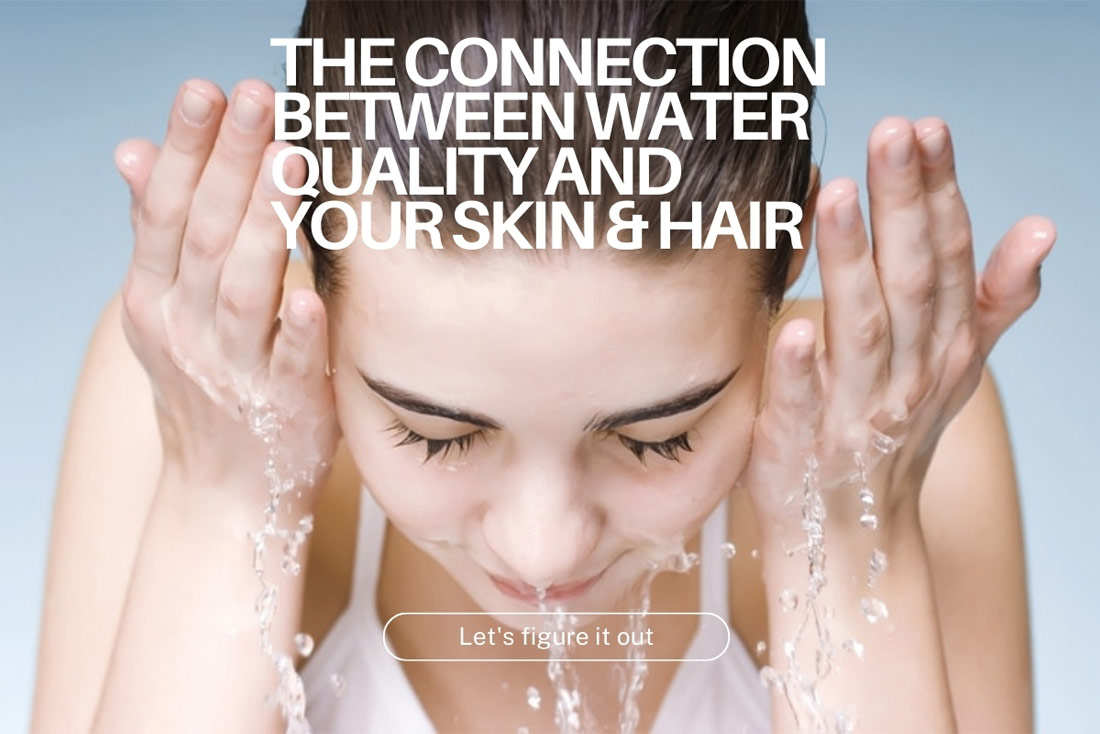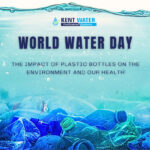The impact of water quality on your skin and hair
Water is one of the essential elements we can’t live without: we are made up of around 65% water, and it has a lot of benefits for our health. We not only need to drink a sufficient amount of water daily for optimal internal hydration, but it also plays a crucial role in maintaining the condition of our skin and hair externally.
Speaking of which, have you ever considered the quality of the water you use might directly impact the health of your skin and hair? We give you a clue: the correlation is no longer to be proven – poor-quality water can seriously damage your skin and hair you spend precious time and money taking care of. Good news, we know the cause and how you can solve the problem.
Hard water, the inevitable plague
Hard water is a main cause of low-quality water, with an estimated 85% of Canadian households receiving it through their taps. You may have heard of it, but what is it exactly?
Hard water is defined by dissolved minerals such as calcium and magnesium. The higher the concentration of those minerals it contains, the harder your water is. You have probably observed its results: the deposit of soap scum – a white scale that covers your shower, bathtub, and sink surfaces, and leaves stains on your dishes. Additionally, hard water can lead to mineral buildup clogging your pipes, and cause the graying and stiffness of your laundry.
Chlorine, the other surprising villain
Hard water is not the only factor to consider in assessing water quality. You may never have heard of it, but chemicals such as chlorine and chloramine are also important to be aware of.
Most cities treat water with chemicals such as chlorine to ensure its safety by eliminating germs and bacteria. And, even if it should mostly dissipate by the time it arrives at your home, the remaining amount of chlorine can cause some issues you can easily guess.
Now you know what water quality is about, how does it affect your skin and hair?
Water can be hard on your skin…
If hard water is not good for your appliances and clothes, you can be sure it is not your ally for skin health either. Consider how frequently you come into contact with water: it is as often as you are exposed to calcium and magnesium.
The presence of minerals can result in two things: first, it prevents soap from being properly dissolved, meaning that there is some film-like residue left on the skin. Second, minerals cling onto the skin, clogging pores and absorbing oil and moisture, leading to disruption of the normal skin barrier function: the defense of the epidermis is weakened, and yields to dry, tight, itchy and irritated skin. And, if you are sensitive to it, it can also exacerbate chronic eczema, psoriasis and other dermatitis issues, and acne breakouts.
On top of that, chlorinated water also saps the skin’s natural oils and moisture, amplifying the extent of the damage.
…and your hair!
You might see it coming: not only can hard water damage your skin, but it can also damage your hair.
It is quite the same principle: the minerals create a film over the hair that interferes with the cleansing and nourishing properties of shampoos and conditioners. The residue left behind can also block the scales of hair and prevent moisture from penetrating the inner layers of the hair strands. Your hair loses its elasticity and becomes dry and brittle, dull, thinner, lifeless, which eventually leads to hair loss. As for the scalp, if it is already dry, hard water can increase dryness, irritation and itchiness, and favor dandruff and flaky hair. But it can also irritate the oily scalp, drying it to the point where it becomes dehydrated and oily.
As for chlorine, it attacks the amino acids essential to hair retention and growth, as well as the lipids responsible for hydration, strength and brightness. It depletes hair of its natural moisture, too.
To sum up, hard water and chlorine can affect your everyday life in many ways.
How to get a water safe for your skin and hair
You are probably frightened by what you just read. But no need to panic, solutions exist to obtain safe water for your home, resulting in beautiful skin and hair, and professionals are here to help you.
So, what is the plan of action?
First things first, address the hard water issues: get to know the water quality of your house by scheduling a water test. The test includes a full analysis of the levels of sulfur, iron, hardness, chlorine, nitrates, and pH. According to the test results, you will be able to fully grasp the problem and find adequate solutions.
In the meantime, you can learn about existing Water Treatment Systems:
Opting for a Water Treatment System can be a wise investment to save money over time and ensure continuous optimal water quality.
- Water softeners: water softeners reduce scale buildup and lower the overall mineral content in your home’s water through the exchange or neutralization of ions from common minerals. By doing this, water softeners enable your home to enjoy clearer, tastier, and higher-quality water.
- Water filtration systems: water filtration systems act as an intermediary between the city water and the water that comes out of your faucets. They can be hooked up directly to your home’s main water supply, or installed under your sink. From there, they filter out contaminants, and filtered water is sent through your home’s pipes to feed into your water-using appliances.



